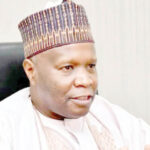On the 14th December 2022, the London School of Hygiene and Tropical Medicine Nigeria Alumni Network hosted its 2nd Health Policy Symposium of the network themed “The Future of Healthcare Delivery in Nigeria- Task shifting to attain Universal Health Coverage and the Sustainable Development Goals”. This symposium was timely, as the Nigerian Medical Association recently revealed that up to 50 doctors leave Nigeria to foreign countries every week, leaving only 24,000 doctors to practice in the country. This, therefore, puts the doctor-to-patient ratio in Nigeria to approximately one doctor to more than 9,000 patients.
This is not limited to doctors, as other cadres of health workers – nurses, and even community health extension workers are similarly affected –working in difficult working conditions forcing may to seek opportunities abroad. The Nigerian Association of Nurses and Midwives has reported that Nigeria now has a nurse-to-patient-ratio of one nurse to about 1,160 patients compared to the World Health Organisation recommendation of one nurse to five patients.
The most terrifying reality is that with a population of nearly a quarter of a billion Nigerians, most people will not get to see a doctor or even a qualified healthcare worker when they need one. This includes young children with preventable illnesses, women at risk of dying every day of pregnancy complications; and accident or trauma victims with injuries that could have been treated.
Without health workers, no health system can function, and improving health service coverage and attaining the highest possible standard of health is dependent on the availability, accessibility, acceptability, and quality of the health workforce.
Tinubu to Atiku: Disclose your health status, corrupt tendencies to Nigerians
How paternity fraud is finding its way into Northern Nigeria
Nigeria has one of the largest stocks of human resources for health in Africa, yet its doctor-population ratio is 38.9 per 100,000 population compared to the sub-Saharan African average of 15 per 100,000 population. Similarly, our country’s nurse/midwife population ratio of 148 per 100,000 population far surpasses the regional average of 72 per 100,000 population.
The shortage and inequitable distribution of appropriate cadres of the health workforce in Nigeria between urban and rural health facilities, and even between states is a fundamental barrier to access to essential health care services where they are most needed. This has led to poor utilisation of thousands of health facilities in the country that were established to provide essential services, ranging from antenatal, delivery, postnatal, infant care, HIV, malaria, to tuberculosis. In a background of the COVID-19 pandemic, and the ongoing brain drain or “japa syndrome” in Nigeria, it is evident that without drastic action, Nigeria’s health sector is poised to grind to a halt in a large segment of the country.
Approximately 10 years ago, due to rising costs of staff salaries and wages, many state governments froze employments in the civil service, meaning that when older health care workers retired, they were either not replaced, or ‘political’ unqualified and incompetent replacements engaged. Conversely, in certain parts of the country, there are many employed but under-utilised health care workers who can be trained to competency and given specific responsibilities for the care of vulnerable Nigerians in hard-to-reach areas.
In response to these gaps, the National Task Shifting and Task Sharing (TSTS) Policy was developed and launched in 2014 to enhance access to essential health services in Nigeria and improve the country’s health statistics. This policy aimed to facilitate the production of health care workers across the various levels of healthcare who are more equipped with knowledge and skills to provide normal pregnancy and childbirth delivery services, offer contraceptive services, and counselling and identify and refer complications. Despite two reviews, state implementation has been minimal, with many health workers largely unaware of its content, much less its expectations of them.
Any functional health system relies on skilled manpower to deliver much-needed services. Therefore, the size, distribution, and skill mix of Nigeria’s health workforce are critical issues that will determine how a sustainable supply of human resources for health, and effective healthcare delivery can be delivered to Nigerians.
Given the incessant exit of the nation’s existing health workforce, and present economic constraints, the country cannot reach the desired threshold of health workforce to deliver quality services through employment alone. It is, therefore, critical that all stakeholders at national and most importantly state levels return to the drawing table. Is universal health coverage worth considering for Nigeria’s population? If the answer is a resounding yes, then certain steps should follow.
First, the TSTS policy must be re-assessed within the context of state peculiarities and community needs, to explore the policy, and how it can work for them. It is not a ‘one-size fits all’ formula, and what may work in Abia State may not necessarily work in Adamawa. Secondly, Nigeria has a largely untapped abundance of the predominantly young population, including the National Youth Service Corps (NYSC) that can be specifically trained and utilised to deliver essential healthcare services for health promotion and disease prevention.
Third, engagement of communities has been sub-optimal to date. During China’s cultural revolution over 50 years ago, about 1.5 million peasants received intensive three- to six-month training in birth control, maternal and infant care, and other relevant areas. These ‘barefoot doctors’ were dispatched to provide basic health care for their rural communities, and the initiative significantly reducing infectious disease and boosted life expectancy.
Community involvement is the cornerstone of equitable health care, and must feature in the design, planning, implementation, and evaluation of health policies. Sustainable healthcare delivery must therefore include such low-cost community-centred and trust-enabling strategies, for without communities, universal health coverage and the sustainable development goals in Nigeria cannot be achieved.
Dr Oreh is the Chapter Lead/President of the London School of Hygiene and Tropical Medicine Nigeria Alumni Network

 Join Daily Trust WhatsApp Community For Quick Access To News and Happenings Around You.
Join Daily Trust WhatsApp Community For Quick Access To News and Happenings Around You.


